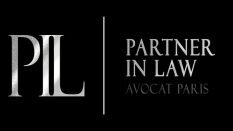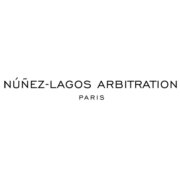Best Foreclosure Lawyers in Paris
Share your needs with us, get contacted by law firms.
Free. Takes 2 min.
Free Guide to Hiring a Real Estate Lawyer
List of the best lawyers in Paris, France
About Foreclosure Law in Paris, France:
In France, foreclosure proceedings are known as 'saisie immobilière', a legal procedure initiated by a creditor to recuperate the debt owed by a client not keeping up with their repayments. This can result in the forced sale of the debtor's property. The process is quite complex and can be timely. In Paris, like the rest of France, foreclosure is governed by specific laws and regulations to ensure both debtors and creditors are adequately protected.
Why You May Need a Lawyer:
The complexity of French foreclosure laws, and the lengthy and intricate nature of the process, necessitate skilled help. You may require legal assistance if you're a debtor facing foreclosure in order to understand your rights, to develop a strong defense, or to pursue a loan modification or refinancing. Creditors may also require legal assistance to ensure that foreclosure proceedings are properly initiated, conducted, and completed to recuperate owed debts.
Local Laws Overview:
The local laws in Paris mirror those of the wider French jurisdiction. A creditor cannot directly place a property on sale. First, they must obtain court approval. France’s foreclosure laws prioritize amicable resolution where possible. Therefore, a debtor is given several opportunities during the process to repay the debt. The final sale of the property occurs only when all other options are exhausted. The French also mandate a transparent auctioning process when the property is sold. Further, the debtor has the right to seek housing assistance from social organizations if they risk losing their primary residence.
Frequently Asked Questions:
1. How long does a foreclosure process take in Paris?
The duration of foreclosure proceedings can vary, but they typically take between 18 to 24 months from the initiation of the procedure to the sale of the property.
2. What are my rights as a debtor during foreclosure?
As a debtor, you have the right to legal representation, to contest the foreclosure, and to propose alternate ways to repay your debt before your property is sold. If the property is your primary residence, you can also seek housing assistance.
3. Can I prevent a foreclosure on my property in Paris?
Yes, you can prevent foreclosure by repaying your debt or proposing a repayment plan. In some cases, refinancing the loan or loan modification may also be possible.
4. What happens after the property is sold?
After the property's sale, the proceeds go towards repaying the debtor's obligations. If there's a surplus, it's returned to the debtor. If there's insufficiency, the creditor may pursue other legal means to recover the remaining debt.
5. Can a creditor directly sell my property without court proceedings?
No, a court has to authorize the sale. The process is transparent and legal, aiming to protect the rights of the debtor and creditor.
Additional Resources:
You may seek help from the French public organization "Agence Nationale pour l'Information sur le Logement" (ANIL) or "Fonds de solidarité pour le logement" (FSL) for housing assistance. For legal aid, the "Service Public de l'accès au droit" offers support. However, it's highly recommended to hire a reputable attorney specialized in French foreclosure law.
Next Steps:
If you are in need of legal assistance in foreclosure, compiling all necessary documents and records related to your property and debt is the first step. Next, consult a legal professional who is well-versed in French foreclosure laws. They will guide you through the complex system, explaining your rights and options while assisting in your legal proceedings. If you are unable to afford a lawyer, seeking help from legal aid organizations could be a viable course of action.
Lawzana helps you find the best lawyers and law firms in Paris through a curated and pre-screened list of qualified legal professionals. Our platform offers rankings and detailed profiles of attorneys and law firms, allowing you to compare based on practice areas, including Foreclosure, experience, and client feedback.
Each profile includes a description of the firm's areas of practice, client reviews, team members and partners, year of establishment, spoken languages, office locations, contact information, social media presence, and any published articles or resources. Most firms on our platform speak English and are experienced in both local and international legal matters.
Get a quote from top-rated law firms in Paris, France — quickly, securely, and without unnecessary hassle.
Disclaimer:
The information provided on this page is for general informational purposes only and does not constitute legal advice. While we strive to ensure the accuracy and relevance of the content, legal information may change over time, and interpretations of the law can vary. You should always consult with a qualified legal professional for advice specific to your situation.
We disclaim all liability for actions taken or not taken based on the content of this page. If you believe any information is incorrect or outdated, please contact us, and we will review and update it where appropriate.
















